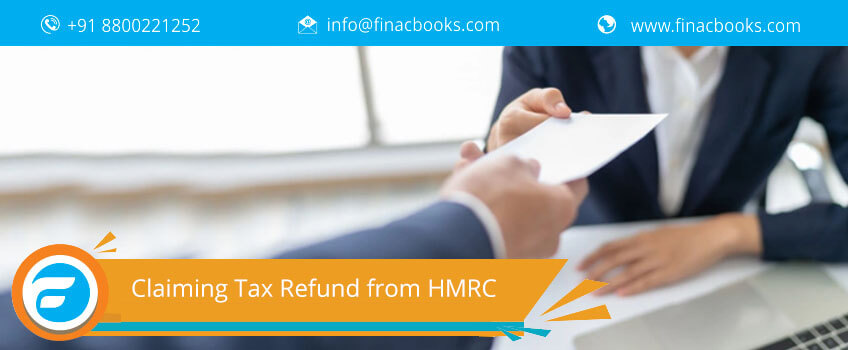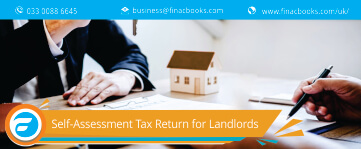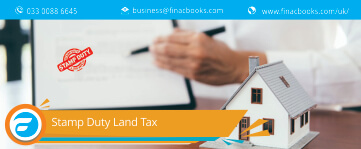HMRC work hard every year to collect the right amount of tax from UK based businesses and employees. So, when you call and try claiming tax back, HMRC does not give it up easily. That being said, it is not unheard of for the Inland Revenue to make mistakes, and it might seem like your friends and colleagues are constantly receiving a tax rebate from HMRC. It often happens and results from the Inland Revenue placing an emergency code on a pay cheque if it exceeds your usual amount. These mistakes are easily rectified and can be claimed by completing a tax rebate form and sending it to HMRC, who will give you your money back. If you are paying tax through PAYE, the process should be very quick, but there are many other processes involved in claiming tax back, which we will discuss throughout this blog post.

Self-Assessment Statement
To file your tax returns in the UK, everyone must submit a self-assessment tax form. This form shows your total income, as well as the tax already paid through PAYE. If you are self-employed, then the form shows your bi-yearly payments. When you send your returns to HMRC, they calculate your tax liability and issue a “Self-Assessment Statement”, which shows whether you are underpaying or overpaying your taxes. If you are required to submit any further information, you must complete that yourself.
P800 Tax Calculation
The P800 is a document issued by HMRC that shows income details, allowances & tax reliefs for the tax year. It shows the calculation of the total income tax you have paid and what you are still liable to pay. If you receive this document, HMRC thinks that you have not paid the right amount of tax. There are three outcomes to the P800 Tax Calculation:
- You have paid the right amount of tax
- You have paid too much tax
- You haven’t paid enough tax
The P800 provides HMRC with information about your employer, tax returns, pension providers etc. HMRC analyses all your tax information and decides whether you have paid the correct amount of tax. If you have underpaid the tax, then your tax code will reflect underpayment for the next tax year. If you are dissatisfied with the P800 for any reason, or you do not agree with its calculations, you must inform HMRC right away. If you have paid too much tax and are due fora refund, the P800 letter informs you what to do next. You will usually have to fill in the form online, and HMRC will send you a text with the rebate amount.
When Can I Claim a Tax Refund?
Most people think the amount of tax they paid is correct, and no further action is needed. If one of the below situations applies to you, then you could have contributed too much tax and be due to a rebate from HMRC:
- You only worked for part of a year.
- Your employer has been using the emergency BR tax code.
- Your employer is using the wrong tax code.
- Your pension providers informed HMRC of an incorrect amount.
- You are a part-time worker and earning less than the personal allowance.
- The Second job used the wrong tax code.
There are many reasons why people pay too much tax, which is why it’s better to double-check your self-assessment statement every year properly before submitting it to HMRC.
Calculating Emergency Tax Implications
If you didn’t receive a tax code at the time of employment, you would be issued an emergency tax code. This could result in you paying too much tax in the first few months if you pay your tax through PAYE. Once you receive your actual tax code, your employer will calculate the tax again, sort out this overpay issue and provide your rebate for the previous overpayment.
I Earn Less than My Tax Code
In the UK, you are permitted to earn £12,570 before you must pay tax on your earnings. If you earn less than this amount, you should not be paying tax. To prove you earn less than the minimum taxable amount, you can provide your 1150L code. This code indicates that you should not pay tax on any wages, providing the value stays below the limit of £12,570 per annum.
Have I Paid Too Much Tax?
In many cases, you may use allowable expenses that you can claim against your income. You must inform HMRC about it to ensure that your tax code is correct. If, after receiving your P60 and performing calculations, you found that you have paid too much tax to HMRC, you can call HMRC and discuss the details with them. These types of enquiries are handled by HMRC representatives every day. They make mistakes but are happy to make things right, so do not hesitate to get in touch with them. After all, it is your money!
Tax Refunds & Students
Many students earn a small amount of money during the year. If your income is less than £12,570 in the current tax year with tax deducted at source, you can claim a tax refund. Tax deductions are made because of the following reasons:
- Your employer must tax you if you are working for a full calendar year.
- You are taxed based on an emergency tax code.
As we mentioned earlier, either complete a self-assessment form with the help of a recent P45 or P60, or you can call your local tax office. You will easily find their telephone number & address on any correspondence you have received from them.
How FinacBooks help you in claiming tax back?
FinacBooks is a leading platform where you can search for qualified accountants offering a range of services like Bookkeeping, VAT Registration & Return filing, Payroll and RTI returns, Pensions and auto-enrolment, Tax investigation service, Business plans, management accounts and more. We have better options with us where you can use automated HMRC compatible software and claim your tax back from HMRC.
HMRC Compatible software is beneficial for small businesses, accountants, contractors, freelancers, agents, non-profit and charitable organizations as it directly submits self-assessment returns to HMRC. It provides a comprehensive overview of your business and submits the correct tax information to HMRC. It helps in the following situations –
- If you overpaid tax and your refund is due, it helps in claiming a tax refund.
- If you underpaid tax, our accountant will advise you on how to pay the remaining amount.
- Submitting unlimited self-assessment returns directly from the system to HMRC.
- Confirming whether HMRC has accepted or rejected your return.
- Simplifying client engagements with e-mail/SMS templates and scheduled e-mails.
- Uploading & maintaining all critical client documents and attaching them to their accounts for easy access.
- Accessing a wide range of system generated reports.
Any Questions? Request a callback from our Tax Experts.


































